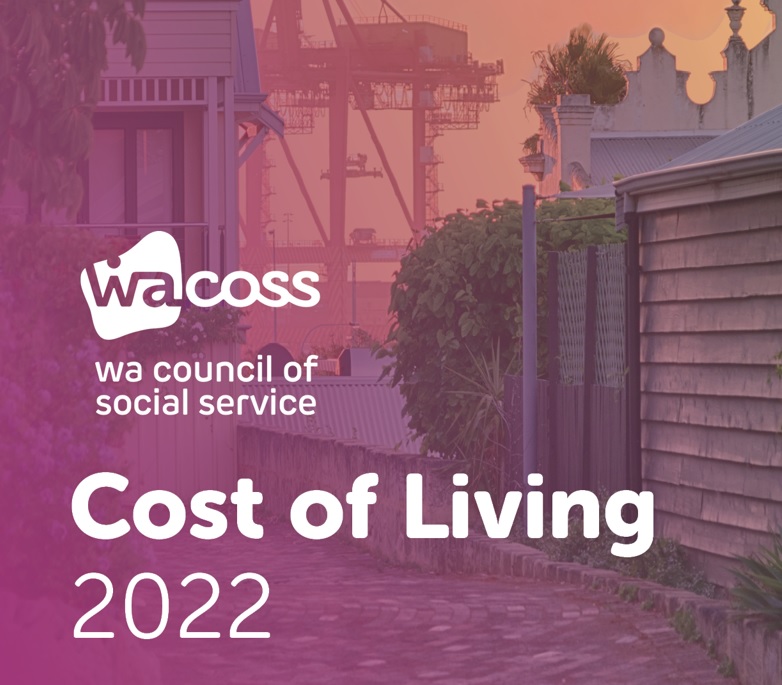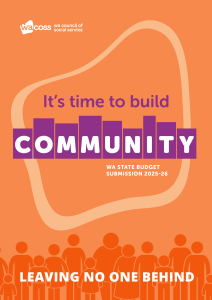WACOSS’s 2022 Cost of Living Report has found that more state and federal government support is needed to curb rising financial hardship, amid soaring prices for essential items.
Global and national events, including the war in Ukraine and floods in eastern agricultural regions, have led to steep rises in the cost of fuel and groceries. The lack of affordable rental properties available in WA has seen rents skyrocket, while rising interests rates put pressure on mortgage-belt households.
WACOSS household modelling for the 2021/22 financial year reveals the pressures that these factors are having on low income households.
Each of the modelled household types saw a deterioration in their financial position on last year’s Cost of Living Report, at a time when supermarket chains and fossil fuel producers are recording record profits.
This means that typical single parent families and aged pensioners who are renting are being pushed to the edge, while a typical unemployed single person is already past the point where their income is sufficient to cover their basic living costs.
WACOSS Deputy CEO, Rachel Siewert, said poverty is a choice Governments make, they can change the situation for people struggling to meet their basic living costs.
“Basic living costs have increased in every single category – food, transport, housing and utility bills – while incomes have seen little growth or, in the case of those on income support, a significant decline,” Siewert said.
For every household that WACOSS modelled in this year’s report the gap between income and expenditure has narrowed.
“Raising the rate of JobSeeker, and other federal income support payments like rent assistance, is essential to ensure that those who are unemployed are able to cover the costs of meeting a basic standard of living in line with community expectations.
“While we acknowledge the state government has made a significant investment in social and affordable housing, it is impossible to build the number of houses WA needs overnight. A re-introducion of the rent relief subsidy scheme in the interim would help reduce housing stress for low-income households.
“Replacing the Energy Assistance Payment with a percentage-based primary energy concession and expanding the concessions system to include Health Care Card holders would mean more people who are doing it tough can get extra support for basic living costs like utilities and transport.
“Wages are flat, income support has fallen behind living costs and prices keep rising, more support is needed to ensure fair outcomes for all Australians, this is a choice Governments can make.”




